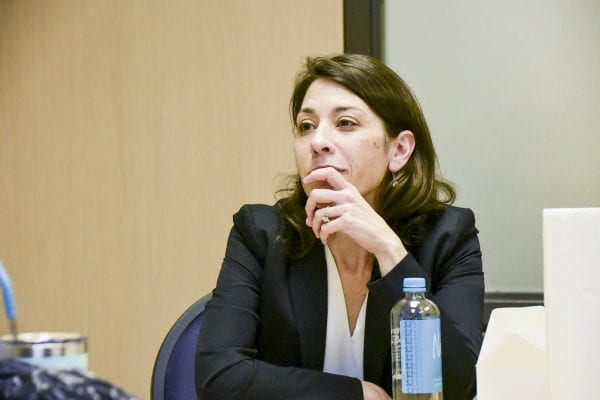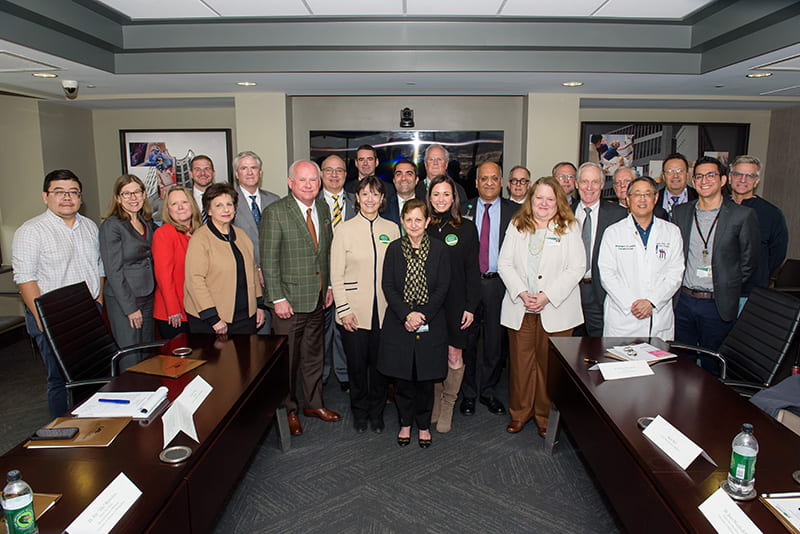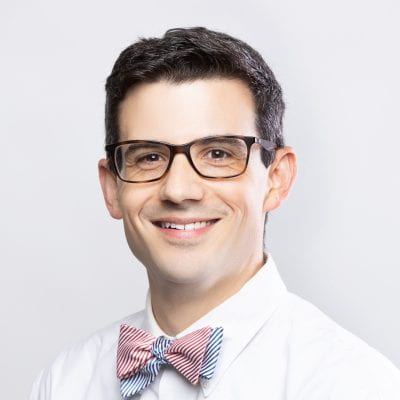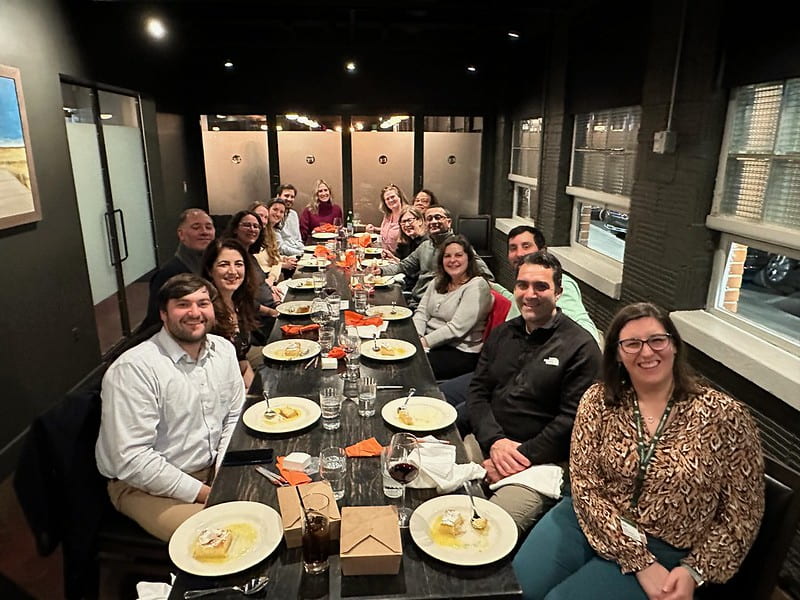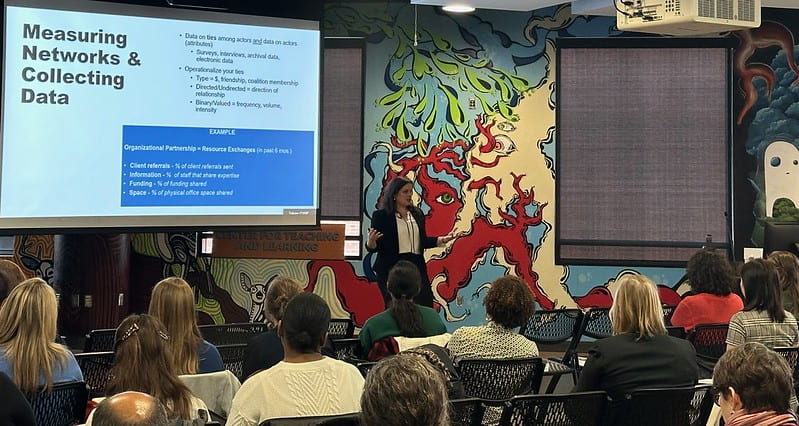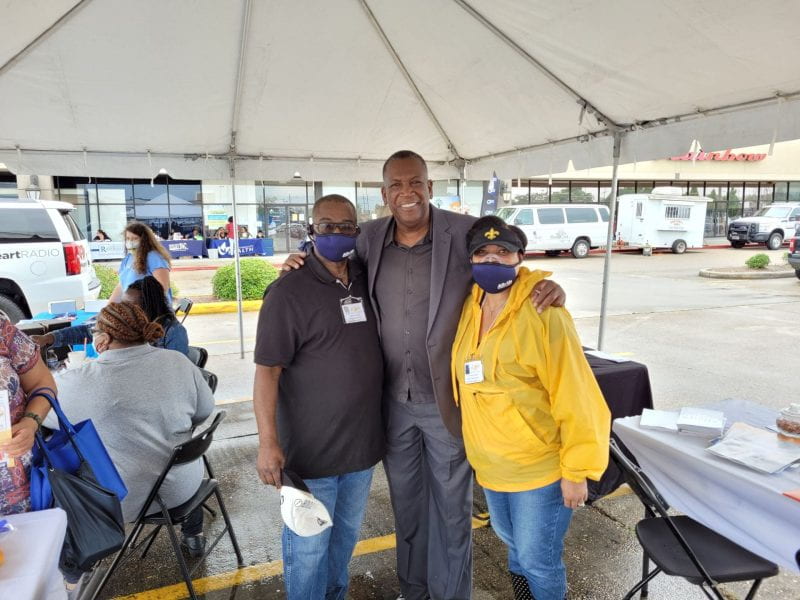
Empowering Communities: Dr. Tiffany Haynes’s Innovative Approach to Health Equity
The Forge AHEAD Center was honored to host Tiffany Haynes, Ph.D., at the University of Mississippi Medical Center this week as part of our scientific seminar series. Dr. Haynes, associate professor in health behavior and health education at the Fay W. Boozman College of Public Health at the University of Arkansas for Medical Sciences, engaged with FAC members in Jackson, sharing her experiences and insights, further enriching our understanding and commitment to health equity.
Dr. Haynes shared her enlightening presentation, “Fostering Health Equity for Black Men: Insights from the Barbershop Talk Project,” to a hybrid crowd Wednesday. The project, part of the Center for Research, Health, and Social Justice (CRHSJ), is a testament to the innovative approaches required to address health disparities among Black men, focusing on stress management and the reduction of unhealthy alcohol use. Situated in barbershops across Arkansas, this initiative leverages these community hubs to offer early detection and intervention for unhealthy drinking behaviors, tackling significant health risks like cardiovascular disease and cancer. Dr. Haynes emphasized the distinct challenges Black men encounter, stating, “This is important and necessary,” to highlight the vital need for support mechanisms beyond alcohol in addressing the unique stressors faced by this group.
Throughout her presentation, Dr. Haynes imparted lessons learned from implementing the Barbershop Talk project, emphasizing the importance of social justice and community engagement. She candidly shared, “This is not work for the faint of heart,” acknowledging the challenges of navigating a healthcare system not originally designed for such community-centric work. The success of the community-informed SBIRT (Screening, Brief Intervention, Referral to Treatment) model demonstrated the profound impact of tailored, culturally sensitive interventions on individuals and families. Echoing the broader influence of this initiative, a community advocate and supporter of the project shared in a video, “Since I’ve stopped drinking, I’ve had friends and family members looking at me. And older guys saying ‘Man, you still sober? I’m trying to get there.’ To have these older guys looking at me – that says a lot,” highlighting the ripple effect of positive health behaviors within the community.
In alignment with the Forge AHEAD Center’s mission to reduce health disparities and foster equity, particularly in the Deep South, the Barbershop Talk project serves as a shining example of the type of innovative, community-driven research and interventions we aim to support. Dr. Haynes’s approach of incorporating health education and interventions within community settings reflects Forge AHEAD’s commitment to empowering communities toward improved health management. “The model of going to where people are is one that we should use,” Dr. Haynes remarked, advocating for accessibility in health promotion efforts. By spotlighting transformative projects like Barbershop Talk, the Forge AHEAD Center continues to advance its mission, not only enhancing health outcomes but also empowering individuals and families toward a healthier, more equitable future.
View the recording of the presentation below.
Join us at our next seminar in April, where we will host Seth A. Berkowitz, M.D., MPH, associate professor in the Division of General Medicine and Clinical Epidemiology at the University of North Carolina at Chapel Hill School of Medicine. He will share about “Food Insecurity, Diabetes, and Distributive Institutions.” For more details and registration, please visit this page.


